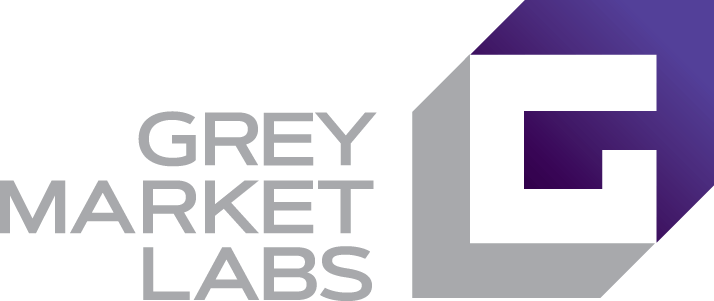 As we’ve closed out 2022, we wanted to share some updates and celebrate the success of last year. With continued growth in both the Commercial and Federal markets, we continue to live the mission to “Protect Life Online” by delivering value and impact to all of our customers. A few highlights include an exciting contract with the Defense Innovation Unit (DIU) addressing a major security challenge for the Army, increasing our support to the Financial Services Sector in accelerating their cloud journey, and providing support to the ongoing conflict in Ukraine. This included the privilege to talk with ABC News about the cyber warfare and challenges associated with the escalating Ukraine war.
As we’ve closed out 2022, we wanted to share some updates and celebrate the success of last year. With continued growth in both the Commercial and Federal markets, we continue to live the mission to “Protect Life Online” by delivering value and impact to all of our customers. A few highlights include an exciting contract with the Defense Innovation Unit (DIU) addressing a major security challenge for the Army, increasing our support to the Financial Services Sector in accelerating their cloud journey, and providing support to the ongoing conflict in Ukraine. This included the privilege to talk with ABC News about the cyber warfare and challenges associated with the escalating Ukraine war.

 All of this success did not go unnoticed and it was a year of great recognition. We received Inc. Magazine’s award for Fastest Growing Company in the Mid-Atlantic, Best Workplaces – National, and made our debut on the national Inc. 5000. Building on our B Corp certification, out of all the global B Corps, Grey Market Labs was recognized in the top five “Best for the World” companies for Governance. Lastly, we were once again awarded a 17&43 award by the University of Delaware – based on revenue, growth, innovation and social impact. This validation of the hard work of our outstanding team and gives us a great platform to continue growing in 2023.
All of this success did not go unnoticed and it was a year of great recognition. We received Inc. Magazine’s award for Fastest Growing Company in the Mid-Atlantic, Best Workplaces – National, and made our debut on the national Inc. 5000. Building on our B Corp certification, out of all the global B Corps, Grey Market Labs was recognized in the top five “Best for the World” companies for Governance. Lastly, we were once again awarded a 17&43 award by the University of Delaware – based on revenue, growth, innovation and social impact. This validation of the hard work of our outstanding team and gives us a great platform to continue growing in 2023.
 As we’ve emerged from COVID, we were excited to resume in-person meetings with our customers, across conferences and forums. This included deepening our partnership with the National Cyber Forensics and Training Alliance (NCFTA) as a sponsor at their annual Cyber Crime forum in Pittsburgh and hosting a workshop at the NCTFA New York City offices around “Combatting Financial Crime and Enabling Technology”. The Replica team continued to share our expert insights as part of our New Battlefront Series. After participating this year, we joined the Digital Supply Chain Institute (DSCI), which solidifies our partnership in securing an ever-evolving digital economy. We closed the year with a celebration of the latest Replica release in October and the inaugural Replica Exchange event. Next year we look forward to more events such as:
As we’ve emerged from COVID, we were excited to resume in-person meetings with our customers, across conferences and forums. This included deepening our partnership with the National Cyber Forensics and Training Alliance (NCFTA) as a sponsor at their annual Cyber Crime forum in Pittsburgh and hosting a workshop at the NCTFA New York City offices around “Combatting Financial Crime and Enabling Technology”. The Replica team continued to share our expert insights as part of our New Battlefront Series. After participating this year, we joined the Digital Supply Chain Institute (DSCI), which solidifies our partnership in securing an ever-evolving digital economy. We closed the year with a celebration of the latest Replica release in October and the inaugural Replica Exchange event. Next year we look forward to more events such as:
 SXSW: come see us at the Optiv Cyber House on March 13 https://go.optiv.com/OptivSXSW.html#Register
SXSW: come see us at the Optiv Cyber House on March 13 https://go.optiv.com/OptivSXSW.html#Register
and hear our CEO and Cofounder – Kris Schroeder at a panel on “National Security Impacts of Ultra-Transparency”
The 2nd Annual Replica Exchange – October 2023
As always, Grey Market Labs and the journey to build Replica would not happen without our amazing customers, team and supporters like you. We look forward to connecting with you in 2023!
___________________________________________________________________________________
Grey Market Labs® is a Certified B-Corp founded with the mission to protect life online. Our Replica™ platform orchestrates, automates, and secures Environments-as-a-Service, making organizations more protected with our patented privacy and Zero Trust architecture and more productive by increasing access to critical data, tools, and workflows simply, on-demand, anywhere. Replica™ support of dozens of use cases that span industries: from disrupting fraud on the dark web, to supporting military operations, combatting human trafficking, and enabling trusted data sharing in healthcare.
Grey Market Labs® is the first cybersecurity product company recognized as a Certified B-Corp organization.
Contact us to see how we can work together.

